CSU visit connects rural high school students to campus life, college pathways
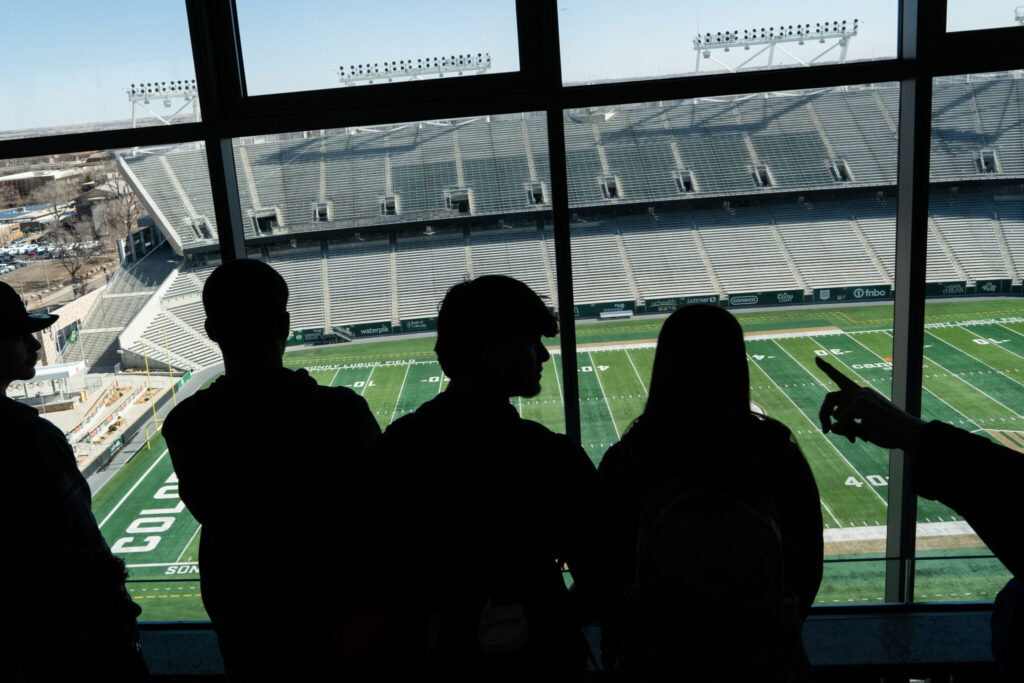
Walking around campus on a bright winter day, it wasn’t hard for Kayce Perry to envision what life would be like when she becomes a CSU Ram: hustling between classes, sharing dining hall meals with friends, walking under the towering American elms along the Oval, and working toward a degree that will help her save lives in rural Colorado and support people in communities like her own.
Perry was visiting CSU with a group of dozens of other high school students, school counselors and administrators who were brought to campus from across Northeast Colorado.
The goal of the visit was to highlight the resources available to help students earn degrees that will kickstart a lifetime of learning and empower them to find meaningful, well-paying careers.
“I want to become a therapist so I can work in a rural school or mental health clinic.”
Kayce Perry, Otis High School Senior
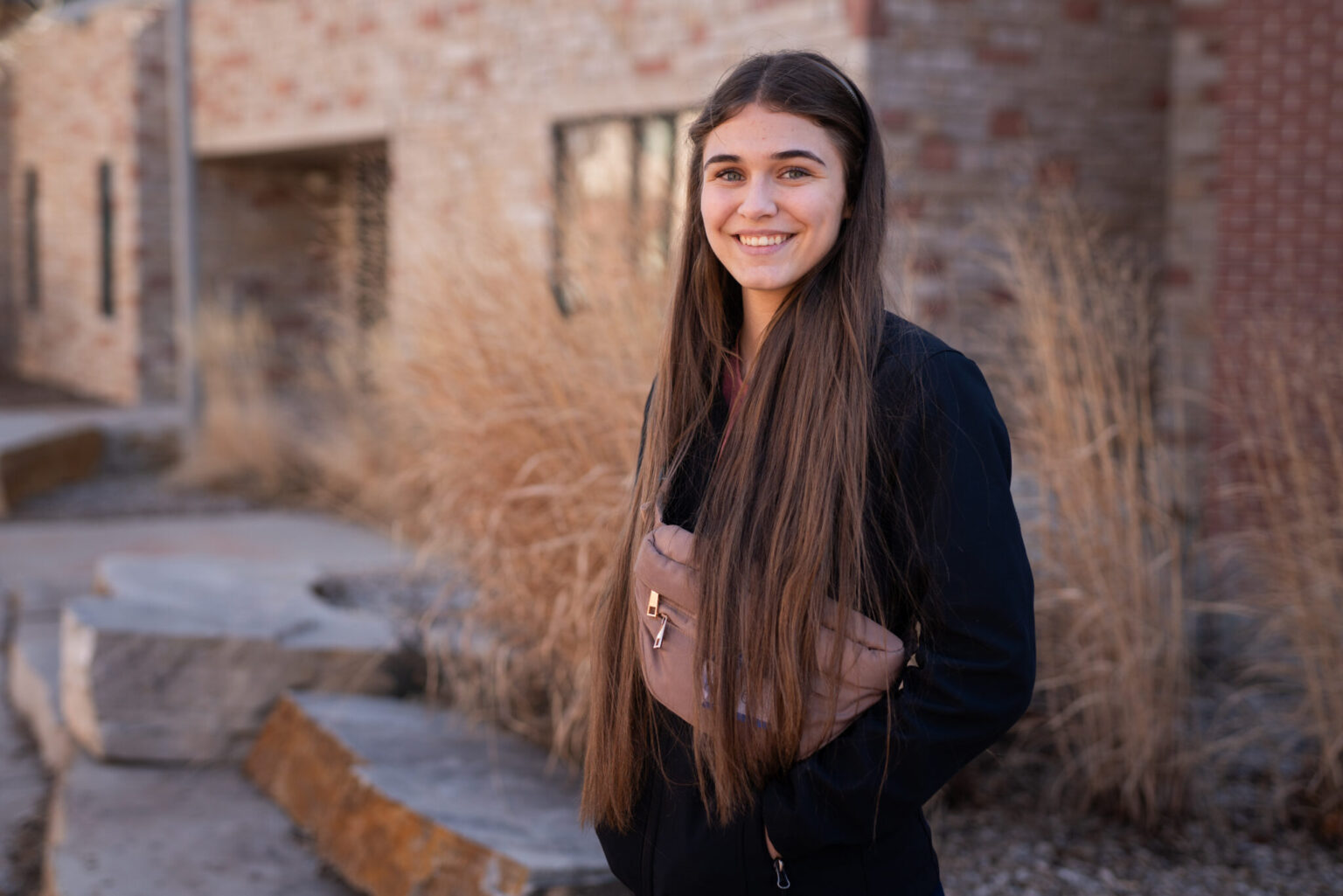
For Perry, a family tragedy crystallized why she wants to attend college and what she wants to do afterward. This past year she lost her father to suicide.
“You can never be ready for it,” Perry said. “It just feels surreal.”
Looking around her hometown of Otis, population 521, she saw a critical need for more mental health resources. In Perry’s county there is only one mental health provider for every 1,600 residents. So, she decided to become part of the solution.
“My plan is to come to CSU and get a bachelor’s in psychology and then a master’s in clinical counseling and therapy,” said Perry. “I want to become a therapist so I can work in a rural school or mental health clinic.”
However, for Perry’s classmates and thousands of other students across Northeast Colorado, less than half will go on to pursue higher education. For those who do enroll in college, they pursue bachelor’s degrees at half the rate of the state average.
This not only leads to rural high schoolers missing out on the benefits of earning a degree, but to colleges missing out on the diverse perspectives and insights those students bring to campus.
The difference a bachelor’s degree can make
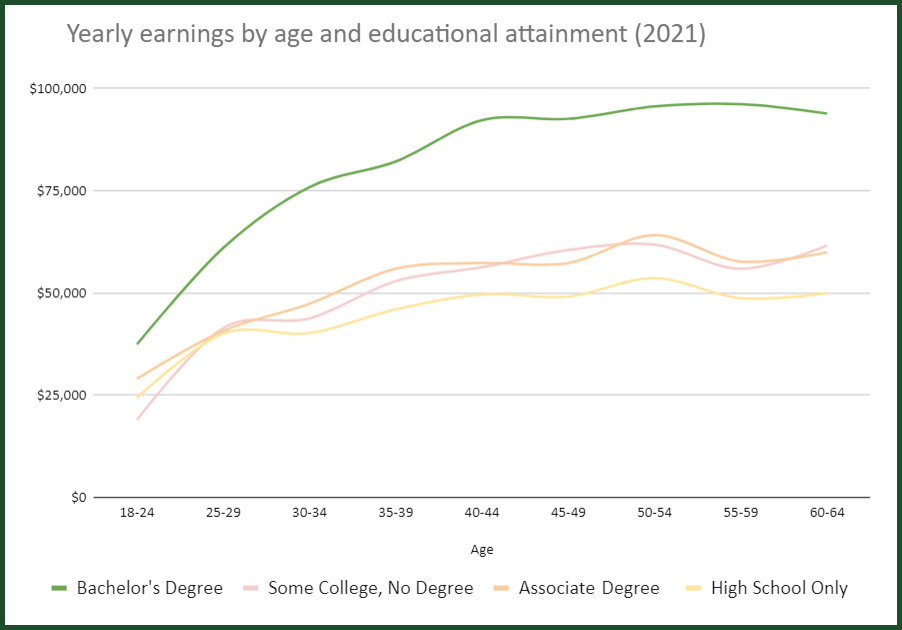
On average, bachelor’s graduates experience higher lifetime earnings, face lower risk of unemployment and see their incomes grow more quickly than peers.
In Colorado, a recent report predicts that nearly three in 10 jobs will require a bachelor’s degree by 2031, the second highest rate of any state in the country.
According to data from the Lumina Foundation, the percentage of people with postsecondary degrees in Northeast Colorado has increased over the past decade. However, the gap between the region’s education levels and the state’s average is the largest it has been in over 10 years.
On average, over half of Coloradans hold postsecondary degrees. Yet, across the northeast region that average falls to just 35%.
“There’s nothing wrong with the trades, we absolutely need to be able to fill those roles, but it can be so hard for students to see other options,” said Dencia Kudron, a counselor at Fort Morgan High School.
“There are so many other opportunities,” she continued.
For instance, at CSU students can choose from nearly 300 academic programs, including more than 70 majors with 140 concentrations and 80 minors.
For more than half of the students who visited campus with the group it was their first time on the University’s campus.
“We want to be able to show people firsthand all that CSU has to offer, and that there is a place for everyone here,” said Inger Johnson, who helped organize the visit and serves as the senior manager of accessible education with CSU Office of Engagement and Extension.
Through CSU’s Rural Initiative, OEE is helping build bridges to rural communities across Colorado, ensuring students who want to pursue their goals through higher education have the opportunity to do so.
OEE also extended $1,500 scholarships to each of the high schools that participated in the visit for one of their students who chooses to attend CSU.
“CSU is where you have the opportunity to reach, aspire and grow, for yourselves and others.”
James Pritchett, VP for CSU Engagement and Extension
Connecting to high school counselors and students to increase access
Rural high school counselors can play a critical role in helping students understand their options for higher education, especially those who might think college is beyond their reach. Counselors can also dispel myths about the value of higher education and point students toward resources that can help them achieve their career goals.
Building partnerships with counselors is just one of many ways CSU is working to increase engagement with rural communities.
For Otis High School counselor Landan Schaffert, who graduated from the rural high school before earning his bachelor’s degree from CSU, serving in his role requires wearing many hats.
“I do everything from helping with academic achievement and scholarship support to mental health, but the bulk of my job is mental health,” said Schaffert, who is studying to become a licensed therapist.
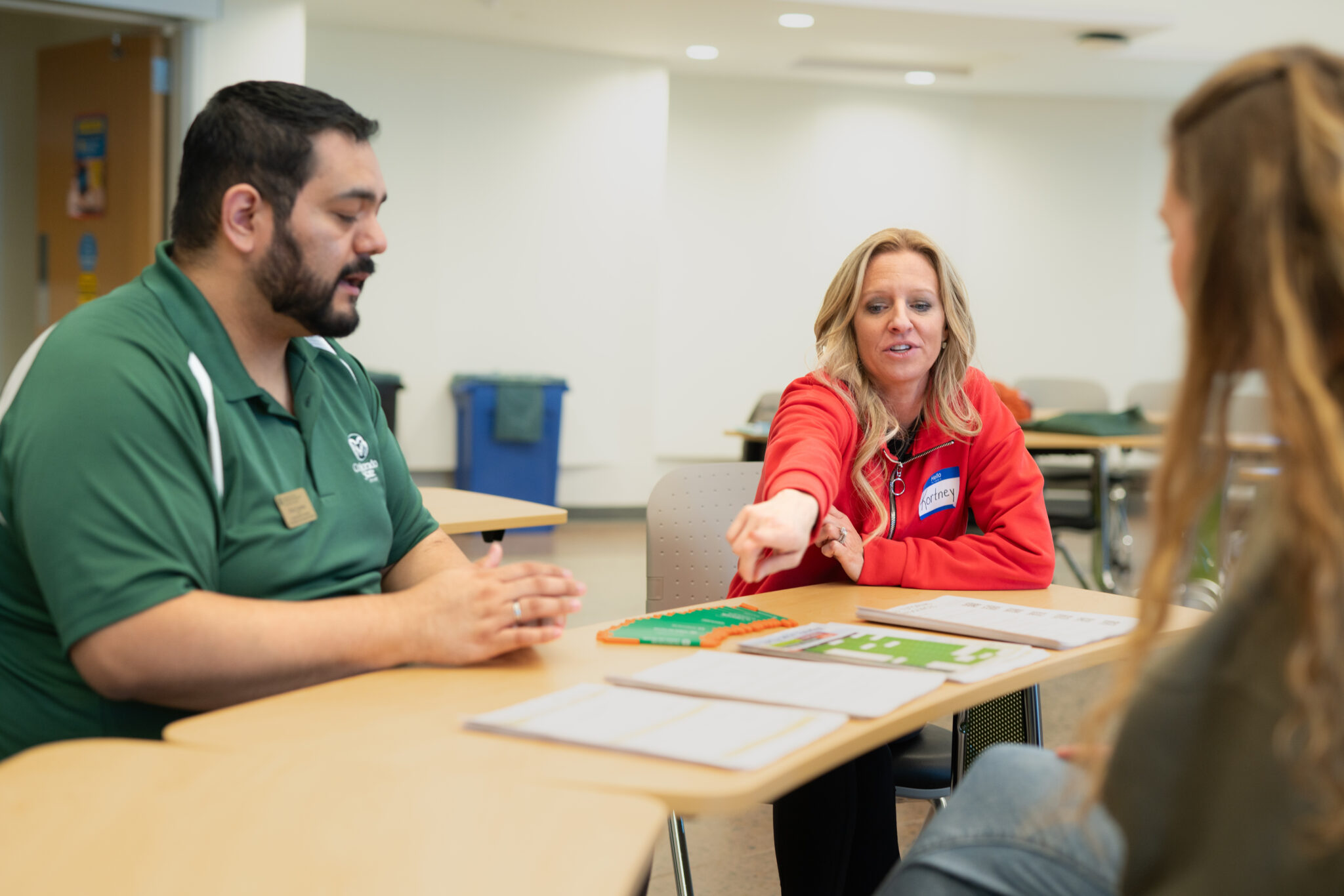
This challenge also gets to the heart of why it’s important for institutions like CSU to support rural school counselors whose time is limited and responsibilities far reaching.
“We know that counselors are influential in how students view their options after high school, and we want to make sure that they see what CSU is like in 2024,” Johnson said.
“We want CSU to be just as much of a home for our counselors as it is for our students,” she continued.
As part of the visit, counselors had one-on-one time with staff from CSU’s admissions, financial aid and academic success teams to ask questions about everything from FAFSA completion hurdles to how the University supports students with tutoring and other resources.
In addition to getting the inside scoop into their technical questions, counselors joined students on their tour of campus, checking out the campus gym, exploring the Presidential Suite at Canvas Stadium, and visiting different colleges.
“They’re really selling it; I want to be a student here!” joked Kourtney Firme, the principal at Fleming School, on her first visit to CSU’s campus.
Building bridges across the state
The CSU Office of Engagement and Extension’s accessible education team sees visits like these as major steps in building relationships and increasing engagement with students and counselors in rural Colorado.
Through the concerted efforts of counselors, administrators and institutions like CSU, students across rural Colorado can find their best path to higher education and build more promising futures not just for themselves but for their communities.
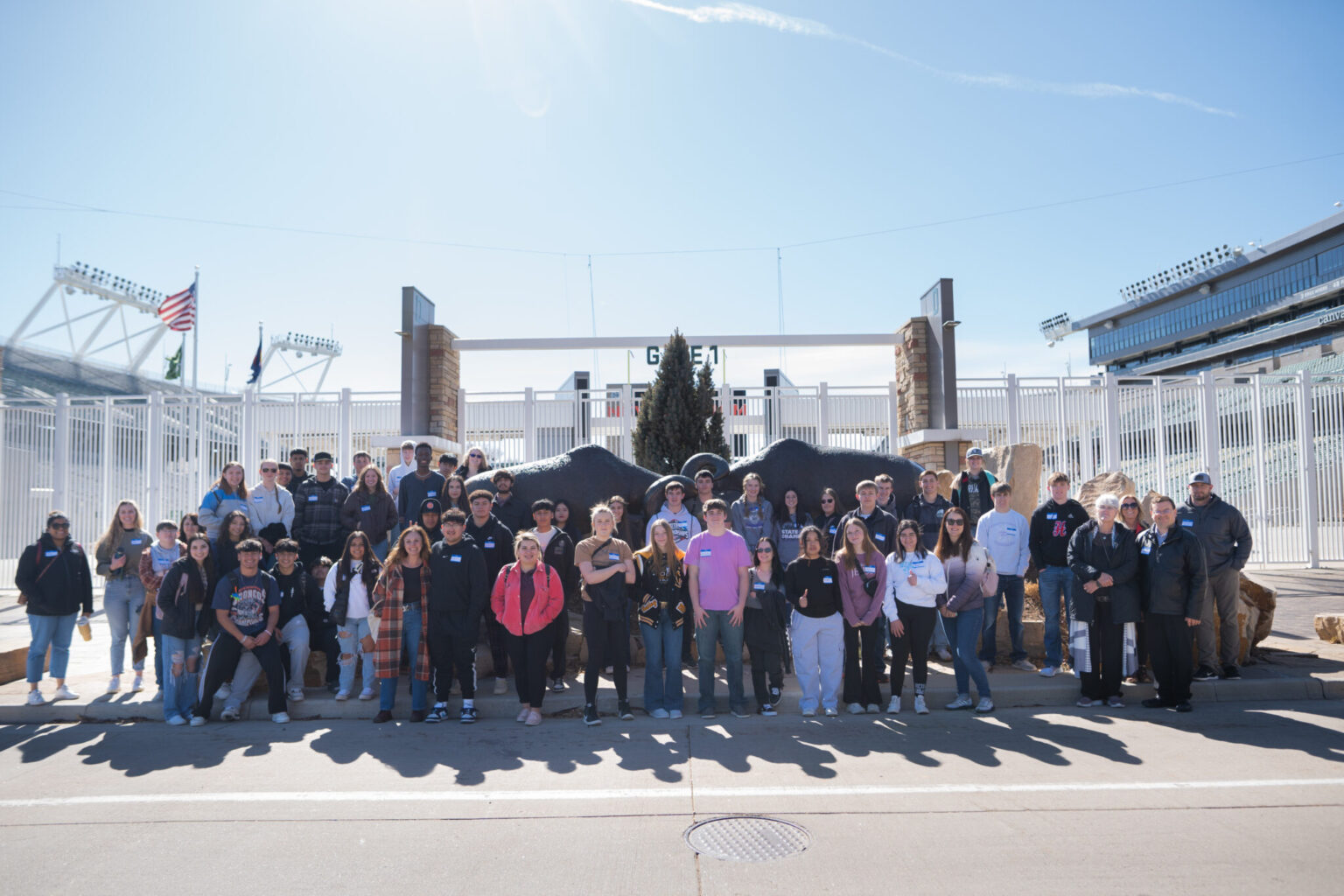
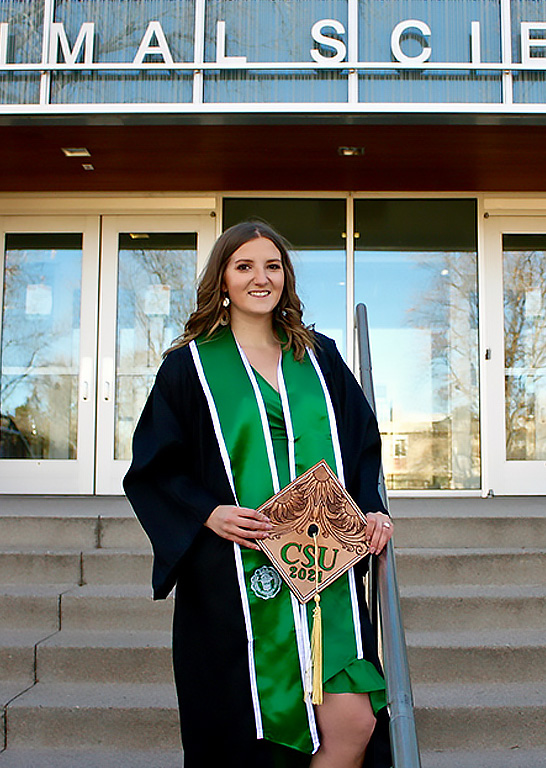
Q: What would you tell people from Phillips County about CSU?
A: CSU has some of the best opportunities for networking with industry professionals and has the best internship opportunities to help you find your dream career.
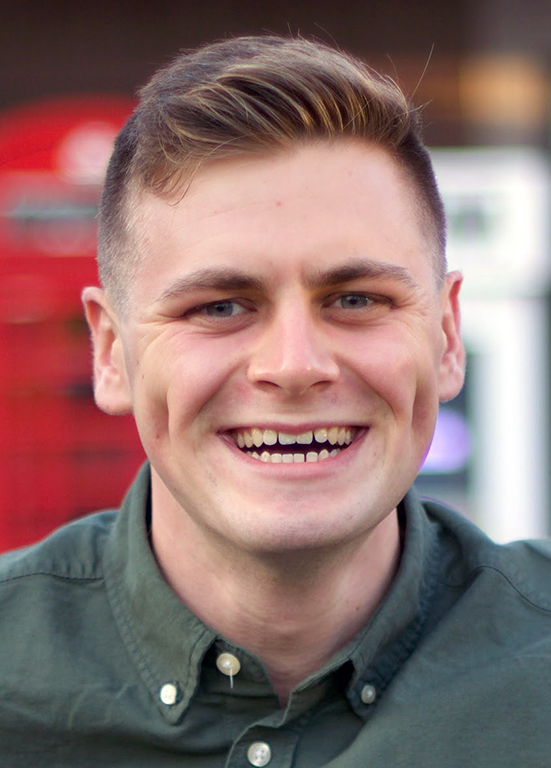
Q: Why did you choose CSU?
A: The energy of the campus, friendliness of all who I met, and the purpose of the University all spoke to me and aligned with my values.
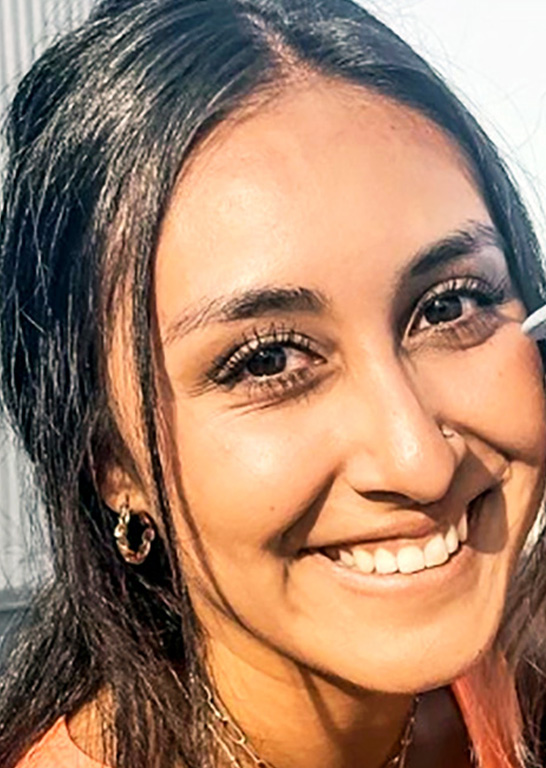
Q: What were your teachers like?
A: They have all been so amazing, kind, patient, loving, and inspiring to me. They have all taught me so much in a devoted way. … I always look forward to my Social Work classes because they are so fun but I also learn so much.
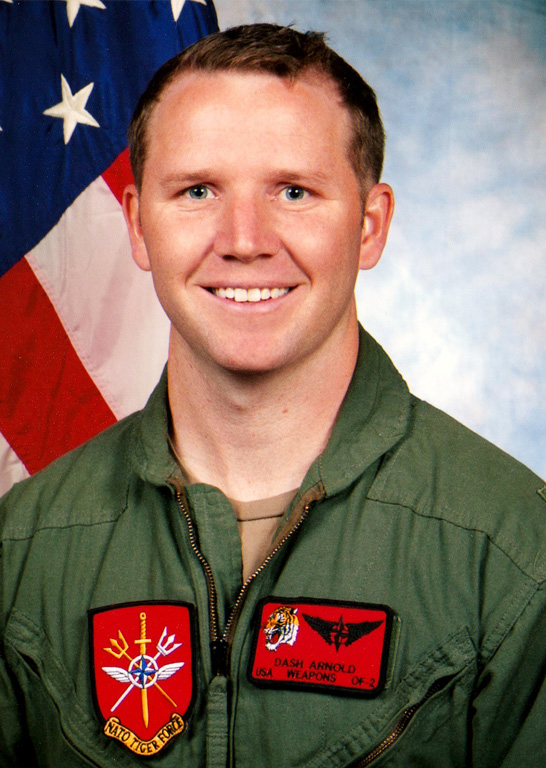
Q: What was your favorite thing about CSU?
A: CSU promotes a healthy lifestyle, encourages you to get out and experience the campus, and you’ve got acres upon acres to choose from for playing some ultimate with friends.
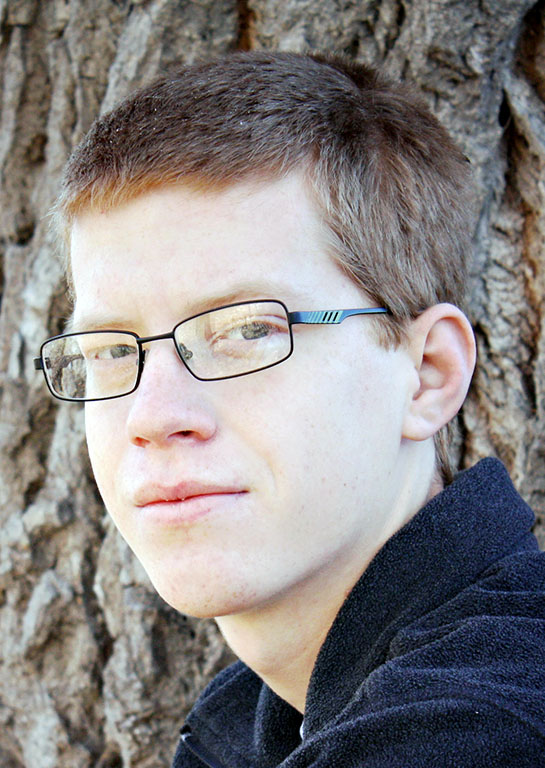
Q: What would you tell people from Washington County about CSU?
A: There are a lot more fields of study and research programs than you probably think! Come up here and visit sometime.
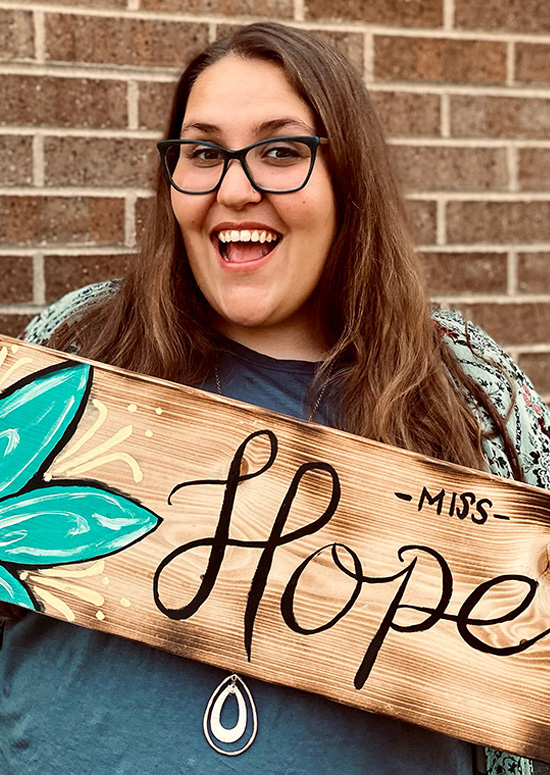
Q: What were your teachers like?
A: Being in AgEd, I took classes in almost every college and subject area, and I met supportive faculty at every turn. Caring faculty made a huge difference in my ability to stay and finish at CSU.

Q: What are your career goals?
A: With my landscape architecture background and now with ag education, I’m seeking to explore new ways to help rural communities find opportunities and resources to grow sustainably and ultimately thrive.

Q: What would you tell people from Logan County about CSU?
A: That I love CSU and my experience here has been great!